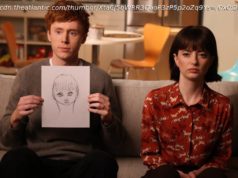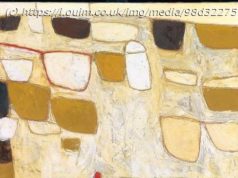When executives at Lionsgate first entertained the idea of making a film about star-crossed lovers who sing and dance their way across Los Angeles, they had good reasons to hesitate.
The musical genre had been littered with flops including “Across the Universe,” “Rent” and “Rock of Ages.” Even more worrisome, “La La Land” was an original story with entirely new songs, making it an especially risky proposition.
“We were really taking a leap of faith,” said Erik Feig, co-president of Lionsgate’s motion picture group. “There’s no way any focus group could’ve said, ‘I want to see something like “La La Land” before they saw “La La Land.”’”
Lionsgate’s gamble is paying off handsomely. “La La Land” is widely considered the front-runner for this year’s best-picture Oscar. Better yet, it’s a box-office winner. The movie, which cost $30 million to make, has grossed $174 million worldwide, an impressive return that is sure to grow after nominations for the Feb. 26 Oscars ceremony are announced early Tuesday.
“La La Land” is a welcome success for Lionsgate, the Santa Monica studio that has struggled to produce huge hits since its blockbuster “Hunger Games” series ended more than a year ago. It has suffered flops such as “Gods of Egypt” and “Blair Witch,” and reliable young adult franchises, including “The Divergent Series” and “The Twilight Saga,” have gone by the wayside, leaving the studio without the big-brand movies that other studios depend on.
But with “La La Land,” Lionsgate has shown it can still deliver big numbers without teen vampires and sci-fi heroes, said box-office analyst Bruce Nash of Nash Information Services.
“It’s a really good sign for Lionsgate,” Nash said. “It’s something that branches out from their typical fare and something they need to do to compete against the six major studios.”
“La La Land” is expected to deliver profits well beyond the box office, and is set to make millions through video on demand and the company’s TV deal with HBO. The soundtrack is a top seller on the Billboard charts, and Feig has said the movie could even become a stage production.
Feig first learned of the movie at the Sundance Film Festival three years ago.
In a corner of a bustling coffee shop in Park City, Utah, he and colleague Patrick Wachsberger sat down with new filmmaker Damien Chazelle, who was looking for a home for his “La La Land” script.
Over espresso and water, Chazelle pitched his movie musical about a jazz pianist and an aspiring actress, a modern homage to the song-and-dance films of Fred Astaire and Ginger Rogers. The three of them bonded over their shared love of classic Hollywood musicals and the 1960s French classic “The Umbrellas of Cherbourg.”
Feig was smitten with Chazelle’s work in another jazz-themed movie, “Whiplash,” and thought “La La Land” would appeal to a broad swath of the moviegoing public. But that was a theory without proof. It had been years since an original musical had delivered blockbuster grosses.
The last time a musical won a best picture Oscar was 2002’s “Chicago.” There have been successes, including “Les Miserables” and “Mamma Mia,” but a musical with an original story and new songs was an even tougher sell. The project had languished in development for years at Focus Features before Chazelle, 32, and composer Justin Hurwitz decided to shop it elsewhere.
The two, who’d been close friends since their undergrad days at Harvard, where they roomed and jammed together, started working on “La La Land” about six years ago.
To make it work, Feig knew the studio would have to put up significant financial resources. Chazelle, in typical indie pitch mode, had told the studio he could deliver the film with a production budget of about $18 million. But Feig, who read the script at the festival and has overseen the “Step Up” movies with Summit, thought it would take much more. The movie called for hundreds of extras, weeks of training and rehearsal for the stars, and an opening sequence that required the studio to shut down a freeway interchange. The production’s $30-million budget was co-financed by L. A.-based Black Label Media and China’s TIK Films.
“Once we decided to do it, we were all in,” Feig said. “You don’t make a movie like that halfway. We made it in a way where we spent enough money to put Damien’s vision on-screen.”
Lionsgate hired producer Marc Platt, who has produced movie musicals such as “Nine” and “Into the Woods,” to shepherd the film. Platt and fellow producers Fred Berger and Jordan Horowitz knew casting would be pivotal. Miles Teller (“Whiplash”) and Emma Watson (“Harry Potter”) were attached to the project at first, but those plans fell through because of scheduling conflicts. Instead, they landed Ryan Gosling and Emma Stone, who’d displayed on-screen chemistry in the 2011 romantic comedy “Crazy, Stupid, Love.”
“It’s a small story with big ideas and big emotions, and it needed two larger-than-life actors for the movie to really lift off,” Platt said. “Once Ryan and Emma signed on, we were off to the races.”
Production at famed Los Angeles locations, including Griffith Observatory and Fern Dell Park , presented challenges. The musical numbers called for long takes and short windows of time for shooting during “magic hour,” when the evening outdoor lighting was just the right shade.
The opening number “Another Day of Sun,” in which motorists sing and dance on top of their cars as the camera zips around, required the closure of an EZ Pass lane connecting the 110 and 105 freeways — twice — in temperatures of more than 105 degrees.
There were also excruciating decisions along the way. The filmmakers scrapped a catchy, uptempo song titled “La La Land” because it didn’t fit the story.
Once the movie was ready, the studio faced the next crucial step — how to market it. Rather than sell it as a more straightforward romantic comedy, Lionsgate decided to put the music and the emotion front and center. The first teaser trailers released last summer emphasized the melancholy tone of the movie and featured the more downbeat songs “City of Stars” and “Audition,” instead of the more joyful, brightly colored moments.
“The studio came to understand exactly what the movie was, supported it and ultimately didn’t try to make it into something different,” Platt said. “That was true from production to marketing to distribution.”
Lionsgate has carefully built the box-office momentum for “La La Land.” The studio released “La La Land” in five theaters Dec. 9, and expanded the release over the following weeks to take advantage of positive word-of-mouth and its record-breaking seven Golden Globe Awards.
The movie has its detractors, some of whom complain about the relative lack of songs, the technical quality of the singing and dancing, its familiar “fools who dream” subject matter, and Chazelle’s questionable treatment of jazz.
Домой
United States
USA — Art With Oscar-favorite 'La La Land,' Lionsgate's gamble is paying off in a...






